East Gippsland: Lack of tourism infrastructure exposed in Boxing Day “inland tsunami”
One of East Gippsland’s major tourist attractions remains closed after Boxing Day storms, leaving businesses in a state of uncertainty in urgent need of recovery measures.
A shocker summer for businesses in a small East Gippsland town has exposed the region’s economic fragility as it prepares to complete a transition from timber to tourists.
Buchan went into December with high hopes of a “normal” summer tourism season after the 2019-20 Black Summer fires and Covid decimated visitation.
But 70mm of rain in less than 30 minutes on Boxing Day flipped what promised to be a bumper period.
The freak storm, likened to an inland tsunami by locals, also claimed the lives of two overseas tourists.
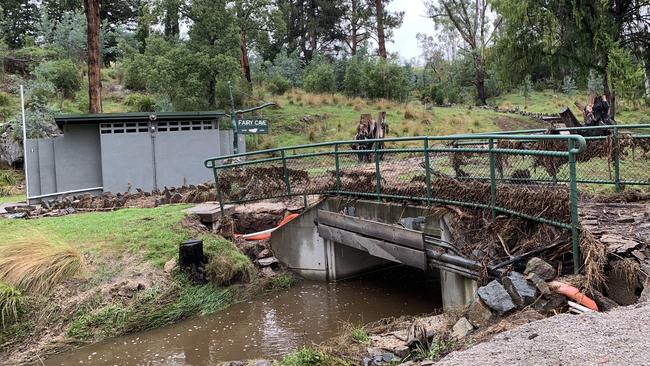
Buchan Caves are one of the region’s most popular attractions, but a fully booked campground felt the fury of flash flooding and remains closed.
Buchan has subsequently become a ghost-town, mounting unexpected pressure on businesses that bank on dollars generated in the summer holidays to carry them through the remainder of the year.
East Gippsland is also being hit hard by the timber industry’s demise with Buchan and other towns more reliant than ever on tourism infrastructure being open to attract visitors.
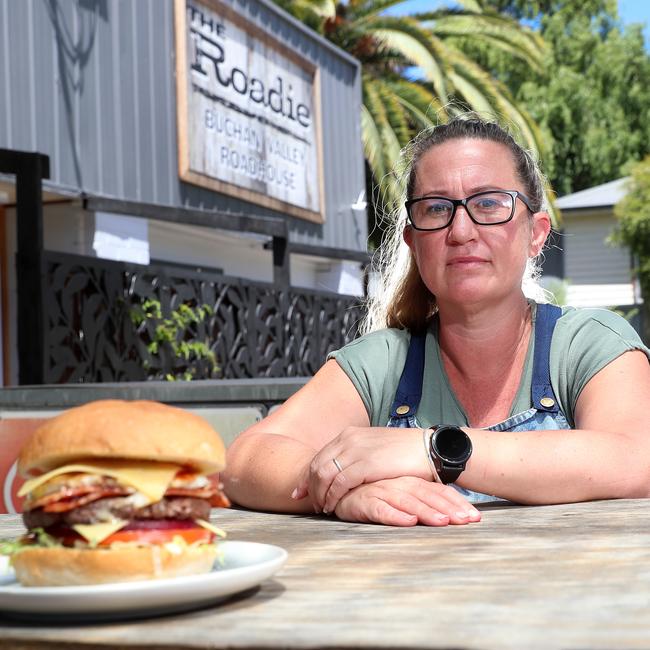
Jayne Cummings, who has been at the Buchan Valley Roadhouse for eight years, said “unfortunately we’ve missed out” this summer.
“The flow-on effect will go until next summer,” she said.
“Straight after Christmas is when Buchan normally gets busy.
“If we have any bad weather down in the coastal towns the day visitors will come up to Buchan to spend their time at the caves.
“Buchan is not a stranger to a disaster, and like they’ve done in the past, all the locals have stepped up.
“People are making a conscious decision to come and have a cup of coffee, lunch, whatever and that has been amazing.”
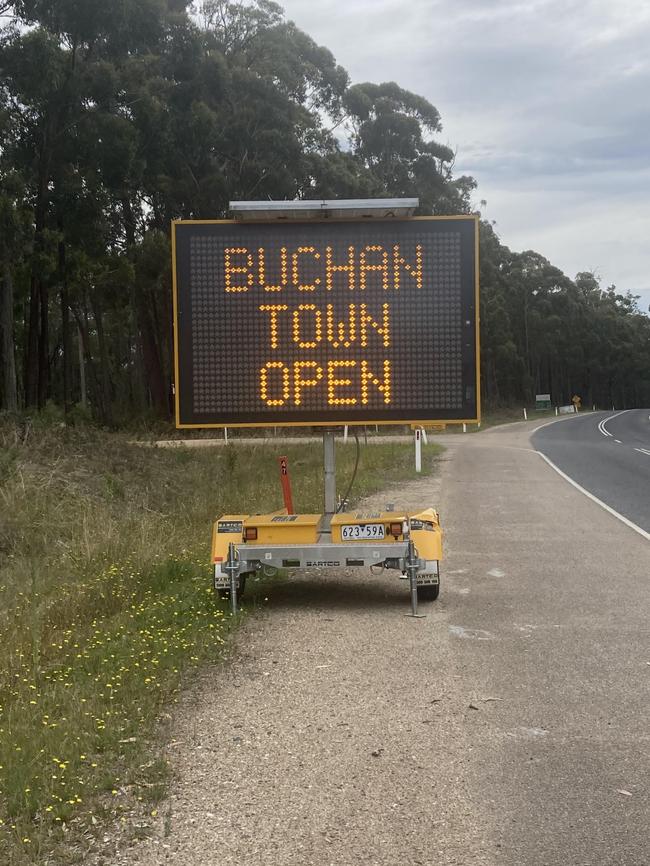
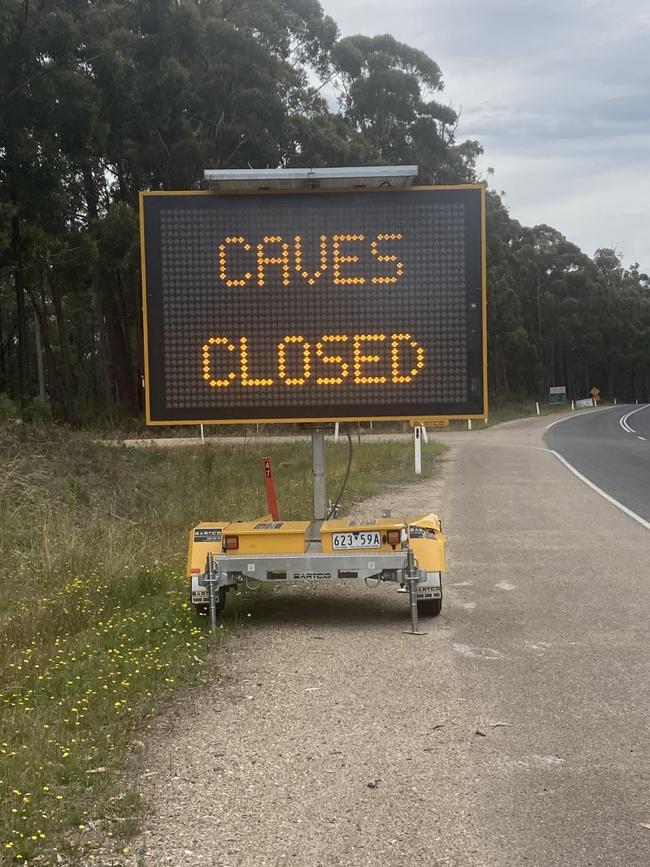
Buchan’s Caves Hotel owner Darren Williams said it had “been absolutely shocking”.
His business had survived the caves closure during the bushfires because there were firefighters based in town and then pandemic-related payments cushioned the blow of the caves being closed again.
But this time was different.
“We’re sitting here without any real lifeline now,” he said.
“The other whammy that has hit is we’ve had a bit of a downturn with interest rates going up and people cutting back their spending.”
Buchan is banking on a bump in business with the annual Canni Creek picnic race meeting on Saturday.
Parks Victoria is a joint manager of the Buchan Caves reserve and Victorian senior manager Victoria Purdue said a “long-term recovery approach will be developed”.
“As joint managers of the reserve, Parks Victoria and Gunaikurnai Land and Waters Aboriginal Corporation are working together on a recovery program,” she said.
“Contractors have started detailed assessments of Buchan’s caves, roads, bridges and buildings.
“These detailed assessments will help us understand the scale of the work needed, time frames for delivery, and ensure we deliver recovery works safely.
“The reserve is likely to reopen in stages when facilities or areas are safe to do so and we’ll keep the community informed about progress.”
Gippsland MP Darren Chester said it was “critically important” for Buchan businesses that the caves reserve was open as “soon as possible”.
“The long delays on recovery projects associated with Black Summer bushfires can’t be repeated this time,” he said.
“We are still waiting for burnt infrastructure on public land to be replaced in East Gippsland, four years after the fires.”
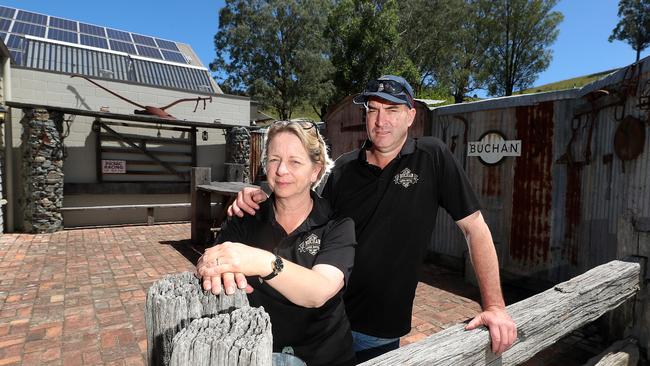
The Cape Conran cabins and Thurra River bridge are two pieces of tourism infrastructure still not replaced since the fires and Orbost Chamber of Commerce and Industry secretary Gary Squires said shops and hotels in Orbost, Marlo and Cann River lost “tens of thousands of dollars” in income between Christmas and late January.
“The flow-on impact of delays of not having that tourism infrastructure is the big issue,” he said.
“Even businesses at Lakes Entrance will tell you they make good money in the summer, they make nothing in the winter and in autumn and spring they sort of break even.”




